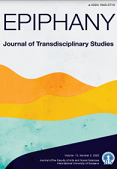TRANSLATING POETRY: CAN YOU LEARN IT?
TRANSLATING POETRY: CAN YOU LEARN IT?
Author(s): Vesna SuljićSubject(s): Studies of Literature, Translation Studies
Published by: International University of Sarajevo
Keywords: translating poetry; translator training; translation challenges;
Summary/Abstract: This paper is an attempt to describe the process through which a translator needs to go when translating poetry. Poetry has been part of human civilization since the earliest times; it has derived from the oral tradition and has evolved through centuries into a distinct genre with particular characteristics in terms of structure, form, style, language and other specific features which differentiate it from prose. In the past, poetry has been translated mostly by poets; nevertheless, it seems possible that an individual who has been properly trained and with some practice and passion can produce good quality translation of poetic works. An exercise in translation of a seventeenth-century poem by Andrew Marvell in this paper is based on theory of equivalence to show several aspects of translating, namely the visual, semantic and aesthetic ones, which could pose challenges for translators but which could be addressed and overcome with adequate training. The translator needs to approach a poem and use equivalent means as much as possible to re-create the work by bridging the gaps pertaining to cultural, historical and linguistic codes. The purpose of this exercise is to draw attention to the need of incorporating translating of poetry into the formal translation studies at universities or other institutions dealing with training translators. It also strives to encourage other translators, as well as students and translating instructors to find more poetic works which have been overlooked in the past and which should be translated so that not only the English speakers can revel in their beauty and enchantment.
Journal: Epiphany. Journal of Transdisciplinary Studies
- Issue Year: 13/2020
- Issue No: 2
- Page Range: 46-71
- Page Count: 26
- Language: English

